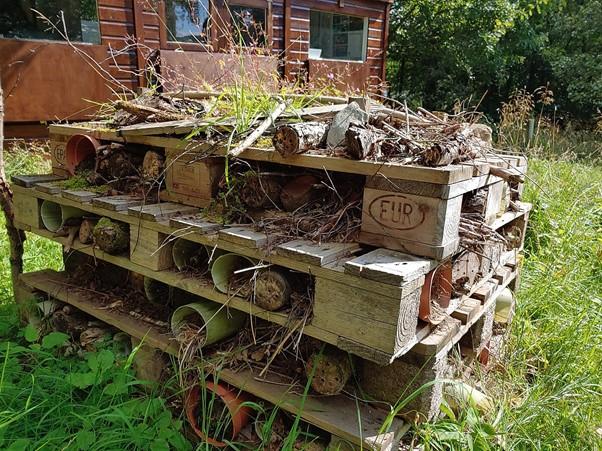Volunteers required for Ashurst nature recovery programme - November 2024
Ashurst Parish Council is looking for enthusiastic volunteers to help with its new nature recovery programme. The council is planning a series of initiatives with Sussex Wildlife Trust to help improve the natural environment within the village and help endangered wildlife species.
The Parish Council is hoping to attract a small group of people of all ages who are keen to help with the project on a part time basis. Knowledge of wildlife and environmental issues would be helpful but an enthusiasm for working on a regular basis with a range of nature recovery and protection projects will be just as important.
While the environment within the village is a haven for wildlife it is important that the village is not complacent and supports national and regional nature recovery initiatives.
Sussex Wildlife Trust will be helping the council and volunteer group to prioritise the work required and establish a benchmark for its progress. Regular update reports will be published in the village newsletter to keep members of the village abreast of all activities.
If you are interested in volunteering and learning more about the project please email Mark Knight cllrknight@outlook.com.

Recycling Update February 2025
West Sussex County Council (WSCC) recycle 53% of our household waste through their fortnightly recycling collections and drop off centres, well above the national average of 44%. In addition to recycling paper, cardboard, plastic, glass and metal cans in your blue topped bin, the council is working with Horsham District Council (HDC), national retailers and other organisations to find more ways to dispose of unwanted household items in an environmentally friendly way.
Now all large Tesco supermarkets, many Sainsbury’s stores and local Co-ops will accept soft and lightweight plastics such as bread bags, fruit and vegetable packaging and crisp packets at recycling collection points in store. They are then turned back into new plastic packaging. Remember it takes over 80 years for a crisp packet to decompose in landfill if you put them in a green top waste bin!
New ways to recycle household batteries by placing them in a small, clear plastic bag (such as a sandwich bag) on top of your green-top refuse bin or your blue-top recycling bin on collection day will save them from decomposing for at least 100 years. Car and other large batteries still need to be taken to a recycling centre.
In a groundbreaking environmental initiative HDC has partnered with Podback to collect coffee pods for recycling. You can utilise the Podback Drop Off and Collect+ schemes. More information on how to use these services can be found on the Podback website. Aluminium or plastic coffee pods take up to 500 years to decompose in landfill so recycling is a must.
You can also recycle your unwanted textiles and broken small electricals with HDC’s free collection service. Book a collection slot online, then just leave your items out in a plastic bag on your booked collection day and keep them clean and dry.
Empty plastic squeezy toothpaste tubes (500 years to decompose in landfill) can now also be recycled in your home recycling bin alongside other plastic items. Ensure they are as empty as possible and that lids are replaced before placing them in the recycling bin.
If you have any questions on what you can and cannot recycle visit the WSCC online resource.
Picture caption: “Decomposing time for household items.”
